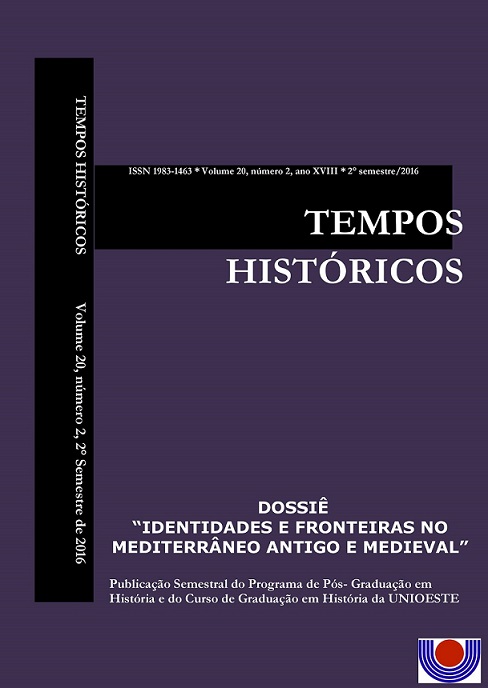PATERNALISMO E RACISMO: HISTÓRIA DOS TRABALHADORES DA VILA OPERÁRIA DA FRIRONDON (1963-1979)
DOI:
https://doi.org/10.36449/rth.v20i2.15793Resumo
O objetivo deste artigo é discutir a formação de uma vila operária no Paraná, nos anos 70, a partir de dois componentes fundamentais na experiência dos trabalhadores: o paternalismo e o racismo. A vila foi criada pelo frigorífico Frirondon, em 1963, como um recurso inicialmente paternalista utilizado para recrutar trabalhadores. Argumento que esta relação perdeu força à medida que os trabalhadores se entrosaram e desenvolveram práticas de lazer relativamente autônomas da direção do frigorífico. Argumento também que o racismo predominante na cidade de Marechal Cândido Rondon nos anos 60 e 70 segregou os trabalhadores do frigorífico, tornando-os ainda mais vinculados à vila. Neste ponto, tento identificar como os moradores da vila sentiram o racismo e reagiram a ele.Downloads
Publicado
Como Citar
Edição
Seção
Licença
Aviso de Direito Autoral Creative Commons
Política para Periódicos de Acesso Livre
Autores que publicam nesta revista concordam com os seguintes termos:
1. Autores mantém os direitos autorais e concedem à revista o direito de primeira publicação, com o trabalho simultaneamente licenciado sob a Licença Creative Commons Attribution que permite o compartilhamento do trabalho com reconhecimento da autoria e publicação inicial nesta revista.2. Autores têm autorização para assumir contratos adicionais separadamente, para distribuição não-exclusiva da versão do trabalho publicada nesta revista (ex.: publicar em repositório institucional ou como capítulo de livro), com reconhecimento de autoria e publicação inicial nesta revista.
3. Autores têm permissão e são estimulados a publicar e distribuir seu trabalho online (ex.: em repositórios institucionais ou na sua página pessoal) a qualquer ponto antes ou durante o processo editorial, já que isso pode gerar alterações produtivas, bem como aumentar o impacto e a citação do trabalho publicado (Veja O Efeito do Acesso Livre).
Licença Creative Commons
Esta obra está licenciada com uma Licença Creative Commons Atribuição-NãoComercial-CompartilhaIgual 4.0 Internacional, o que permite compartilhar, copiar, distribuir, exibir, reproduzir, a totalidade ou partes desde que não tenha objetivo comercial e sejam citados os autores e a fonte.


